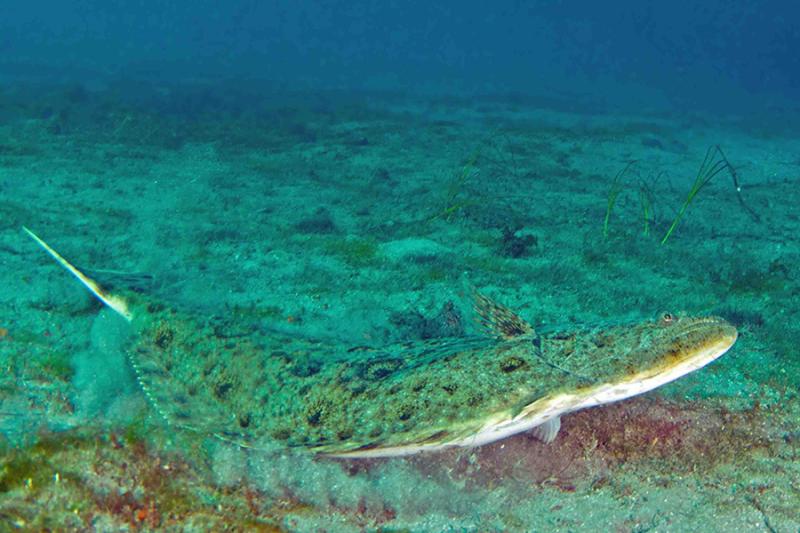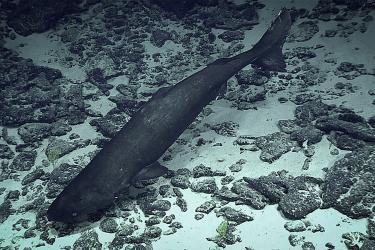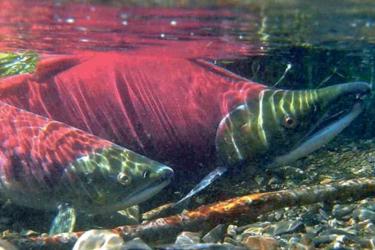Fisheries management throughout Alaska relies on a mix of state, federal, and international laws and regulations. These rules provide the guidance for programs such as the Alaska Subsistence Halibut Program. The program permits rural residents and members of Alaska Native tribes to catch halibut for direct personal or family consumption as food, sharing for personal or family consumption as food, or customary trade.
“This program is very important in Alaska,” said Special Agent Andy Mathews of NOAA’s Office of Law Enforcement (OLE). “It’s built to support traditions and to reduce the cost of feeding rural families. In theory, permitted parties could potentially make one fishing trip and catch enough halibut to feed their family for the year.”
In Ketchikan, the Subsistence Halibut Program permits subsistence fishermen to use 30 hooks per vessel and to retain up to 20 halibut per vessel (excluding the non-rural closed area). Gear, catch limits, and closed areas vary by location. Before fishing under the program, subsistence fishermen must obtain a Subsistence Halibut Registration Certificate (SHARC). Special permits for community harvest, ceremonial, and educational purposes also are available to qualified Alaska communities and Alaska Native tribes.
Under the Northern Pacific Halibut Act, it is illegal to retain or possess subsistence halibut for commercial purposes. It’s also unlawful to sell, barter, or otherwise enter subsistence halibut into commerce.
Recently, Special Agent Mathews, alongside Alaska Wildlife Troopers, investigated a case in which a SHARC permit holder was selling his subsistence-caught fish in Ketchikan. The investigation revealed that the permit holder had made illegal transactions for profit. The buyer and seller were subsequently charged for violations of the Northern Pacific Halibut Act, through the issuance of a Notice of Violation and Assessment by NOAA’s Office of General Counsel.
“We have a commercial fishery that is designed for the catch and sale of fish,” said Mathews. “The subsistence fishery is designed to help Alaska rural residents or Alaska natives fill their needs—it’s not meant to be used to make money.”
Mathews explained that this type of illegal activity has become a noticeable issue and topic of concern for the Ketchikan area. With wholesale prices for halibut at $14 to $18 per pound, the attraction is obvious. But Mathews said he and fellow enforcement officers are on the lookout for these activities.
“This is a high priority us,” he said. “We make every effort to inform the public about the regulations. That way people know the right thing to do and can call us if they think someone is breaking the rules—and they do call us.”
“The NOAA Office of Law Enforcement is dedicated to protecting our national marine resources and supporting those who follow the rules,” said Nathan Lagerwey, OLE Deputy Special Agent in Charge for the Alaska Division. “Those who violate marine resource laws undermine our efforts to sustain fisheries and hurt our communities and law-abiding fishermen.”
OLE’s Ketchikan Field Office has seen an uptick in program-related complaints, questions, and concerns. Mathews attributes this to the increased awareness of the regulations, as well as the heightened enforcement activities in the region.
To read more about the Alaska Subsistence Halibut Program, visit the Subsistence Halibut Fishing in Alaska webpage. To report a violation call NOAA’s Office of Law Enforcement at 1-800-853-1964, or learn more about the office.
Story by Ally Rogers, communications officer for NOAA’s Office of Law Enforcement. To contact her, please call 301-427-8255 or email allyson.rogers@noaa.gov.




